Haz clic aquí para leer en español
Written by Fidgit
The Herstory series profiles women who pursue their passions. Each have stepped up with courage, a message, and a willingness to share her own odyssey.
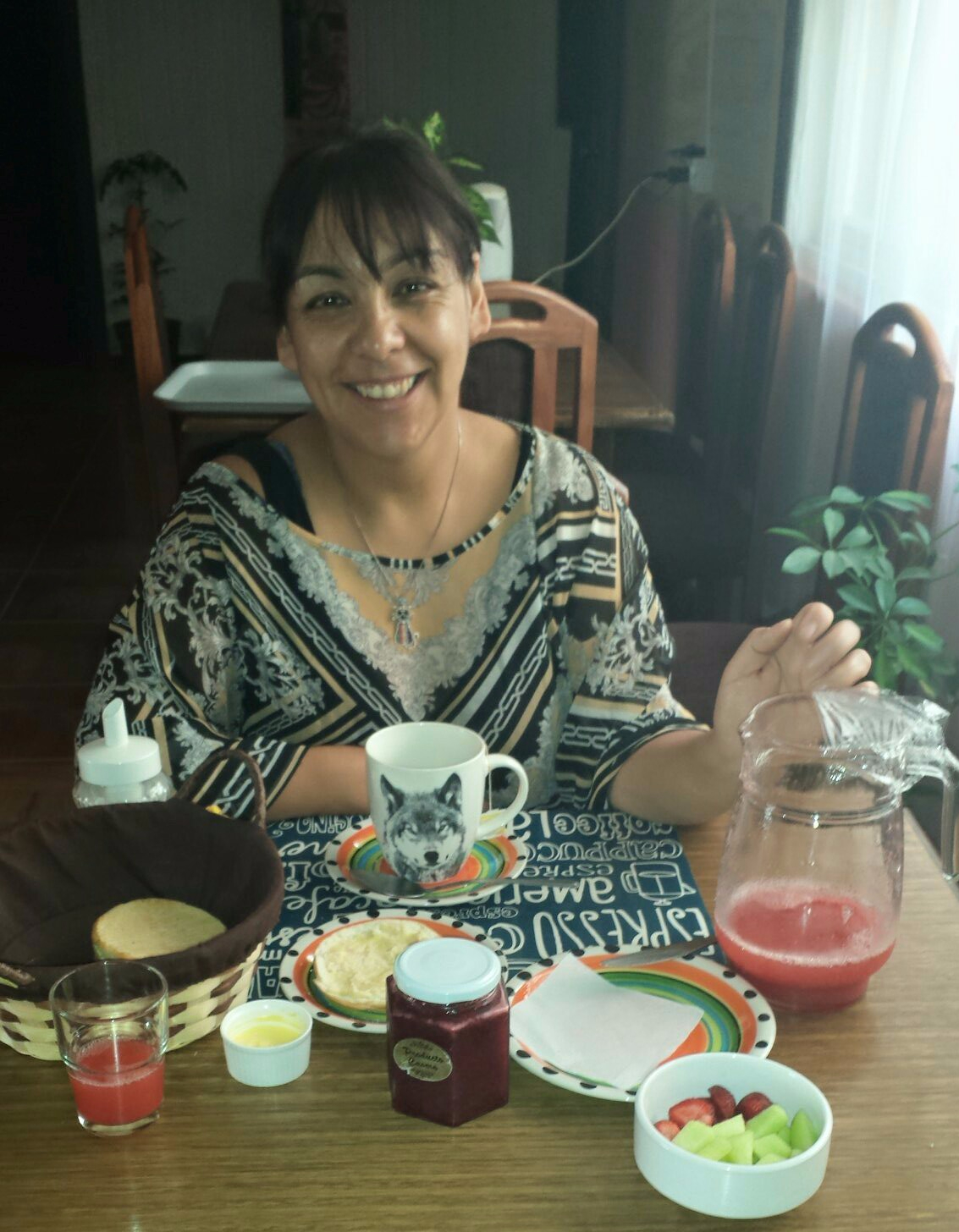
Angelica is a tenacious 46 years old who loves her independence, her children, travel, and AC/DC and Metallica. As she explains it, in keeping with a traditional Chilean comprehension, there are three stages of life. “The first stage is childhood, the second is when she raises her family, the third is once her children are grown.”
None of these phases have gone easy on her, yet she finds reason to celebrate every aspect. As we converse over breakfast at the hostel she administers, El Molino, in San Fabian, Chile, she explains the strength of character and personal code which has been forged through these etapas. Gazing out the window, palming her tea mug bearing the face of a wolf, she says, “underneath it all I give thanks to God.”
Phase 1- Girlhood
She was one of 4 children and the only daughter. Her father was a rice farmer who expected one of his sons to take over, “but I was the only one who was interested in agriculture, though he never offered it to me.”
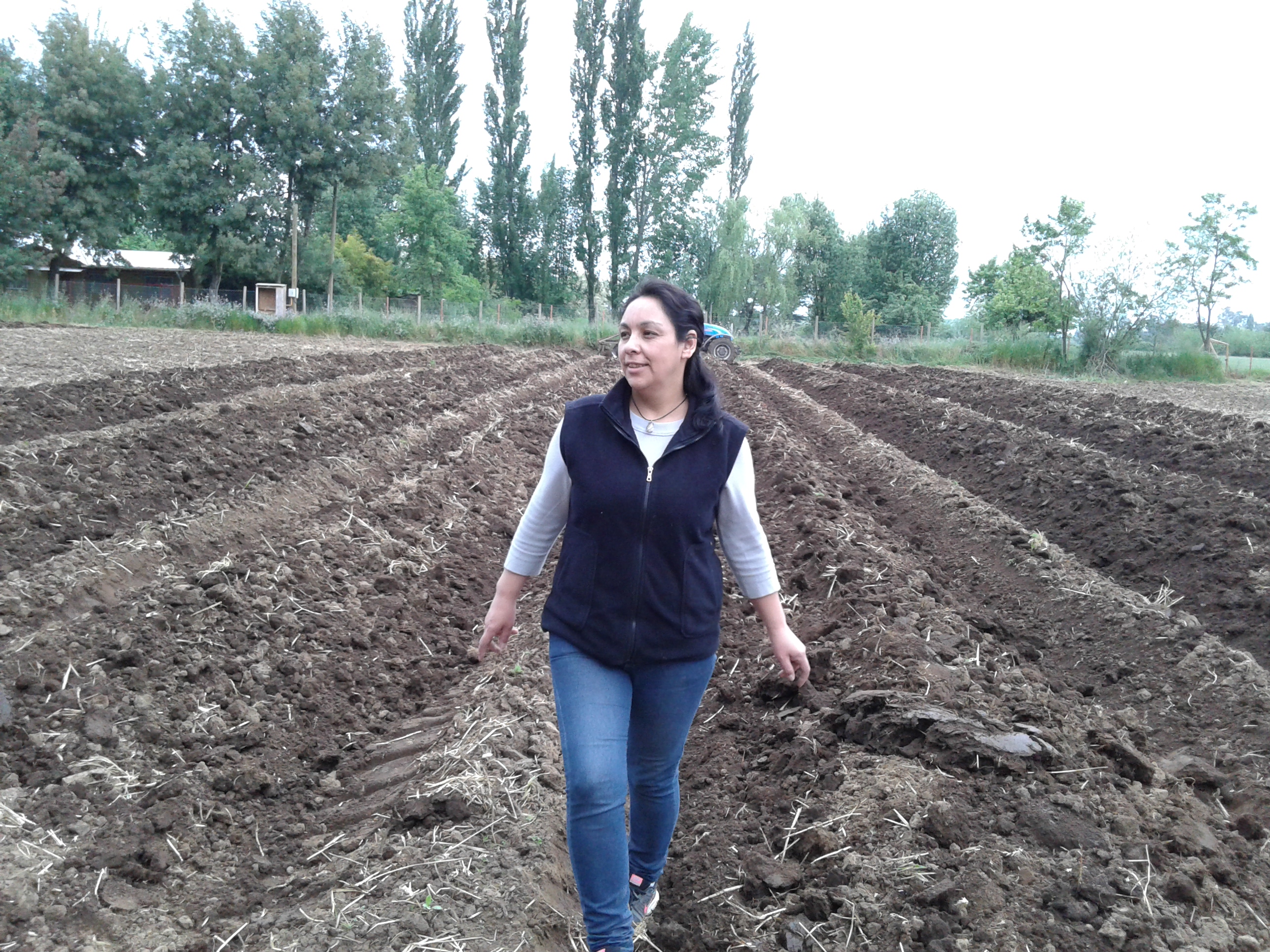
Eventually she began working with him, and they butted heads often, “because when he would show me how something was done I would suggest ways to improve it, and he would say, ‘who are you, who have never done this, to tell me how to do it better?’ I dared to confront my father even since I was a girl.”
She has always been of a strong and persistent character. When she ran into something she didn’t know how to resolve, “llamo a Pedro, Juan y Diego,” one of the many Chilean colloquialism which laced our conversations. Their equivalent to saying, “every Tom, Dick, and Harry.” We laugh over them and compare sayings as we refill our tea.
“I was in conflict my family a great deal as a girl because I always questioned everything, I always wanted to know why and how to do things better. In the end I broke the paradigm in my family that a woman is meant to stay home.”
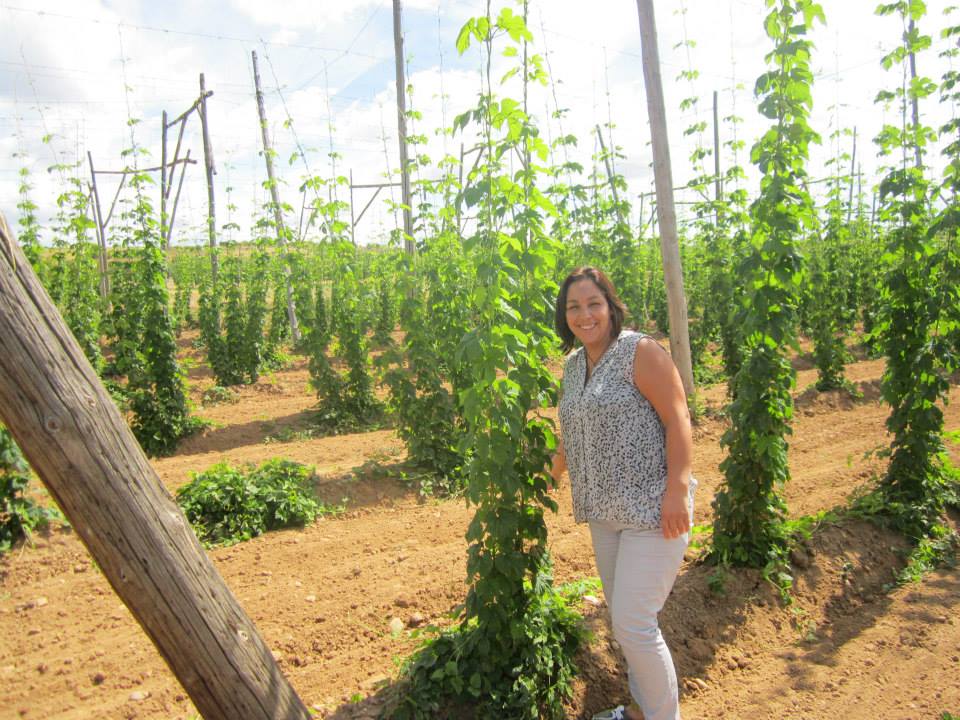
Phase 2- Motherhood
During the second phase, her life became about her children. “I married young and he was very charismatic. People liked him because he wanted to take care of everyone, except his family.” She supported herself and her children through the divorce, accessing SERNAM, the Chilean national women’s service branch, for psychological support. “My ex-husband was bi-polar and I lived through a lot of physical and psychological violence. I took nothing in the divorce, I filled my house with my own work. I raised my two children by myself.”
She thumbs the handle on her mug, “Resilience is the ability to forgive someone and rise above. Either I could live my whole life lamenting what was or I could say, ‘I’m sorry for him.’ That gave me a lot more. This is how one can heal. You must live through the stage until you say, ‘that’s enough, I’m getting up.'”
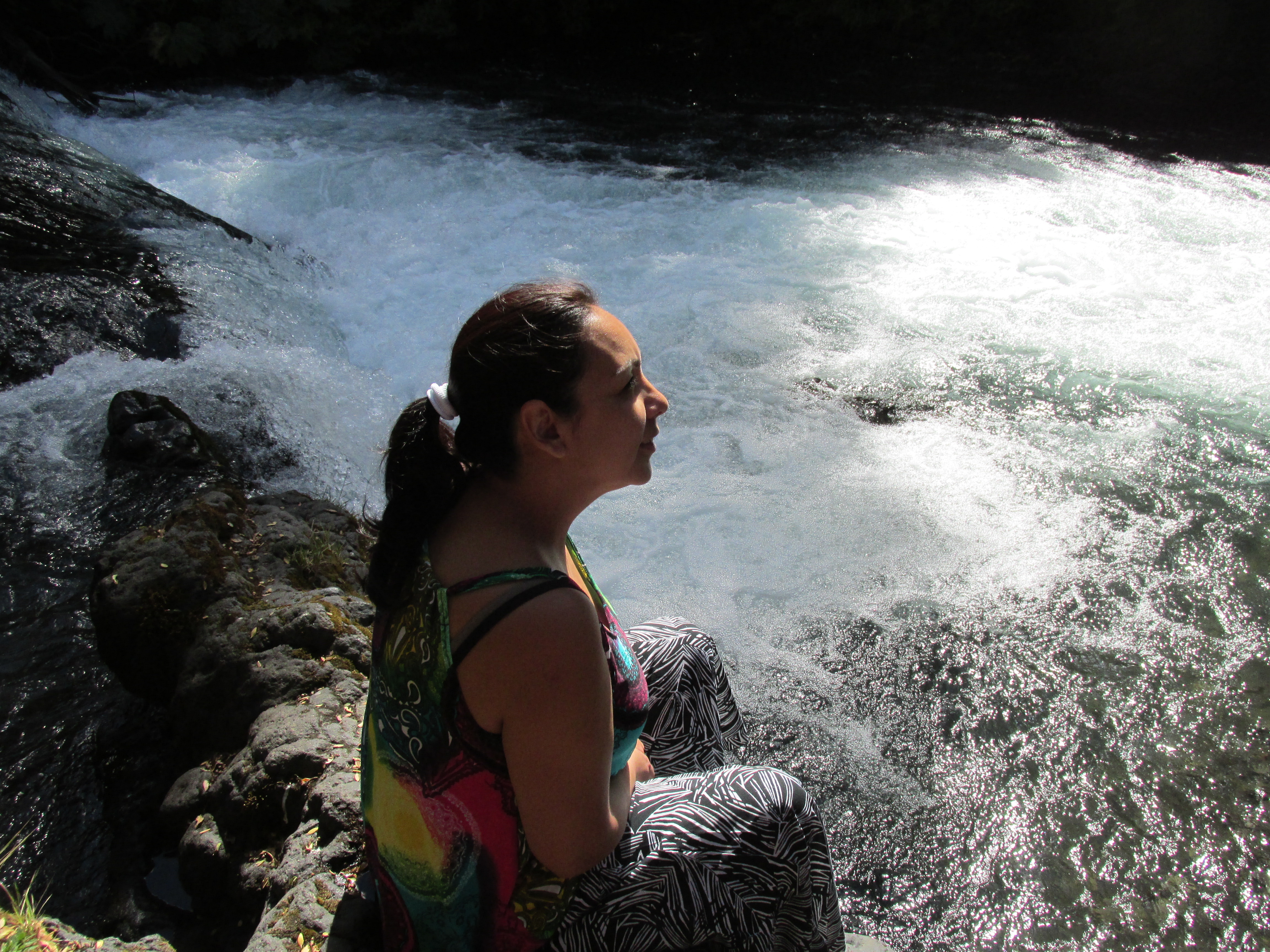
“I have worked in many things, though there were times when we didn’t have enough even for bread.” Her face shifts as she works through the memory and draws the strength from it. She continues, “I think this turned out to be good, because it taught my kids the value of things and not to buy unnecessary things. Also they can laugh about the simplest things.”
Her full time job was working with frozen fruits for export and she always worked over-time. She supplemented that income by working on the weekends, “selling things on buses and door to door. I understand a bit of how you live out of your backpacks because when I recognized the usual housewife, especially in the country-side, has a need for many small things, for example clothespins, I would fill a backpack with them and travel to the small villages and go door to door. This was how I afforded to live and helped put both my children through college.”
Despite the long hours and work, she always made time for her children. “I always gave them at least half an hour of my day, even though sometimes I would come home from a 14 hour workday exhausted but they would come into my bed with me so we could be together. Now my daughter says, ‘God gave me a 4×4, all terrain, mom.'”
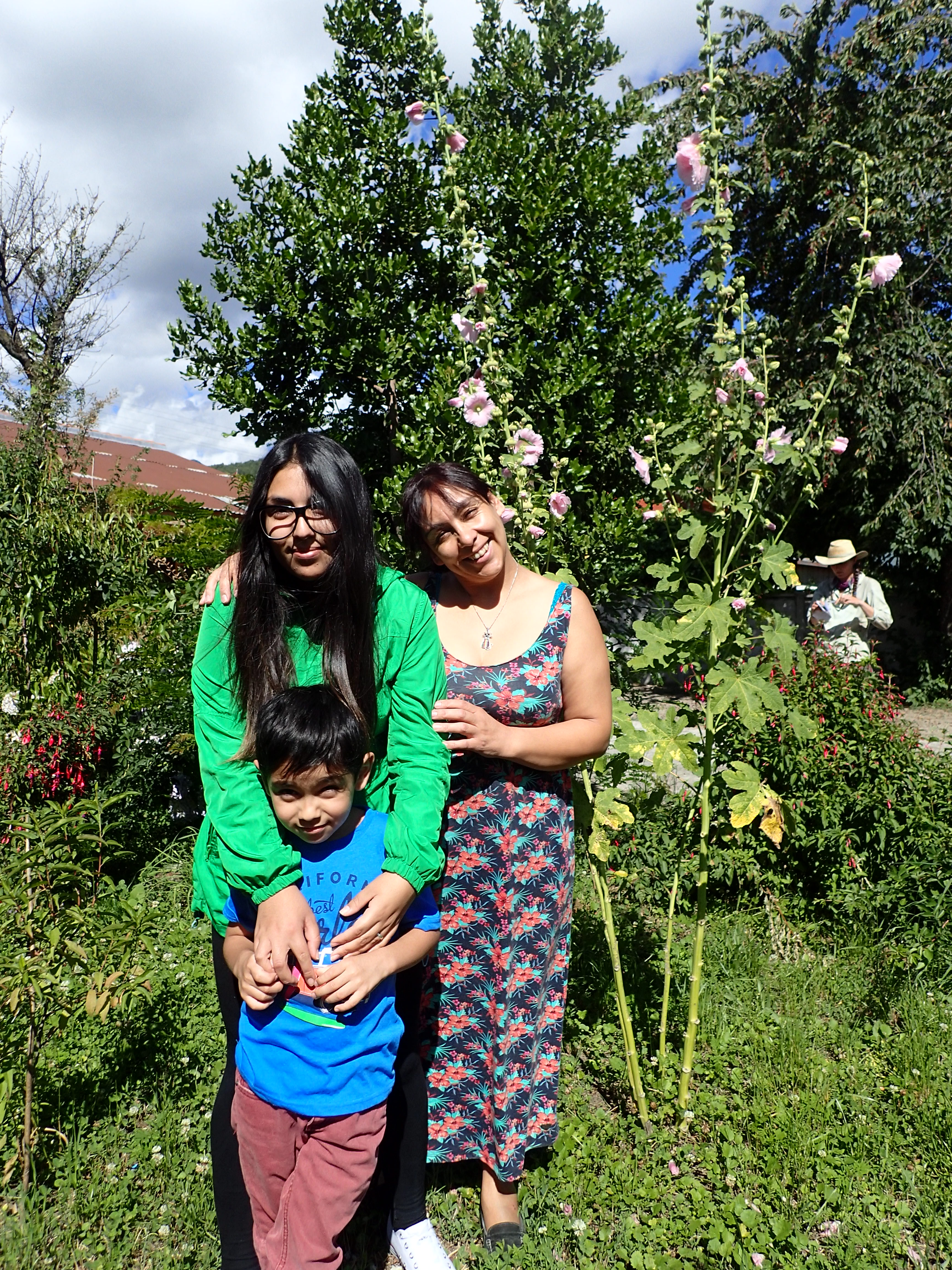
Phase 3- Independence
“I am in a new phase in my life. I am done raising my children and now I am more free.” She sweeps her hair out of her face and begins to beam. “Whenever I have saved up enough money, I go travel. I love SCUBA diving and I have gone sky diving, things which women do not do here.” Traveling opens up your mind, to realize there are many opportunities.”
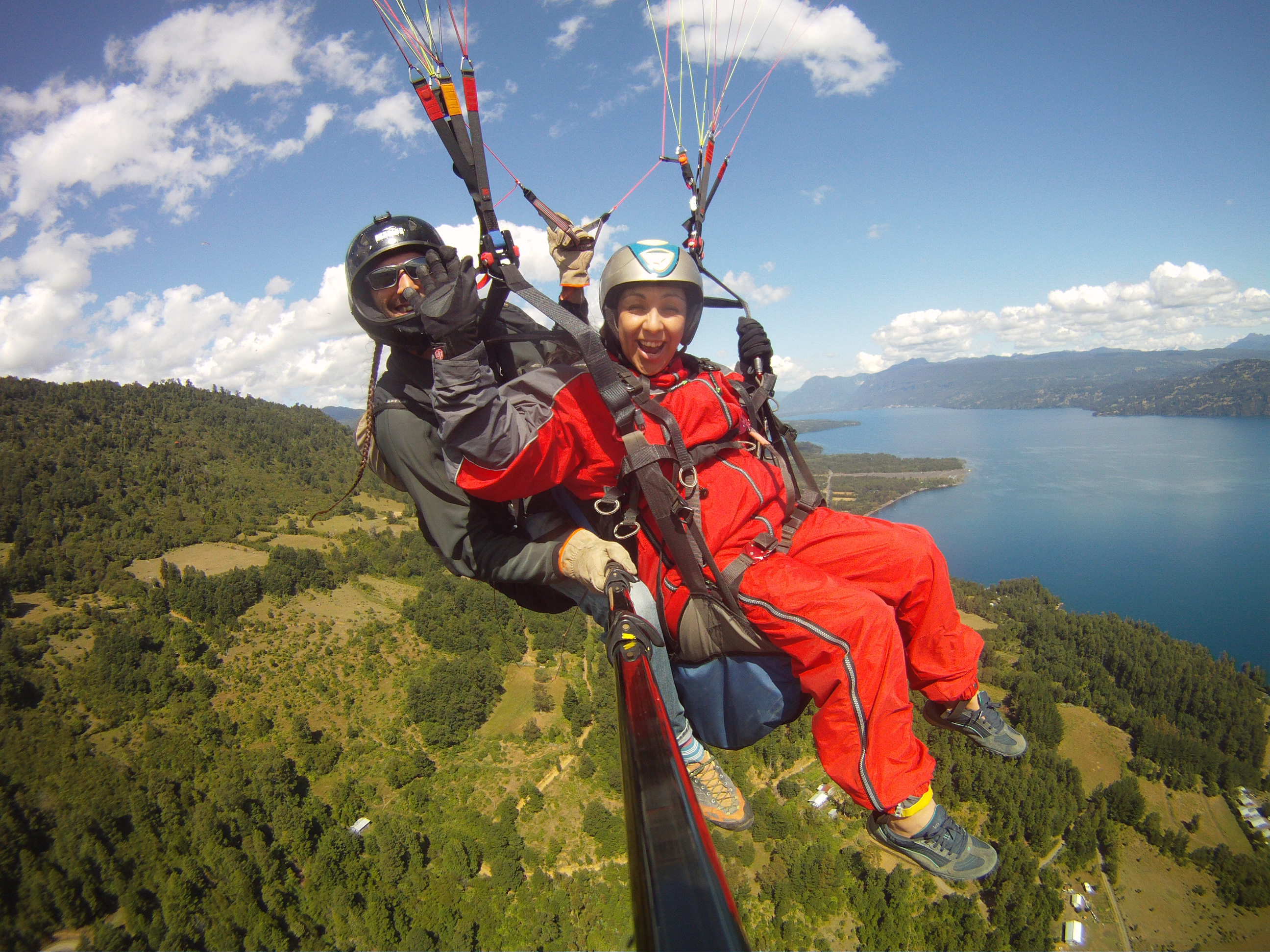
She speaks of freedom, yet her entrepreneurial and hard-working spirit pervades. She longingly recalls her travels in Mexico, citing that was where she learned the small business ethic that “what is good for you is good for me.”
With well earned pride she declares, “I am the first legal brewery in the San Carlos Ñuble Province, since 2009. “Since there were no breweries when I went to apply for the permit, I had to do all the research for the local government myself. It was a lot of work and cost me a lot but it is was worth it to me to be able to sell my beer legally.”
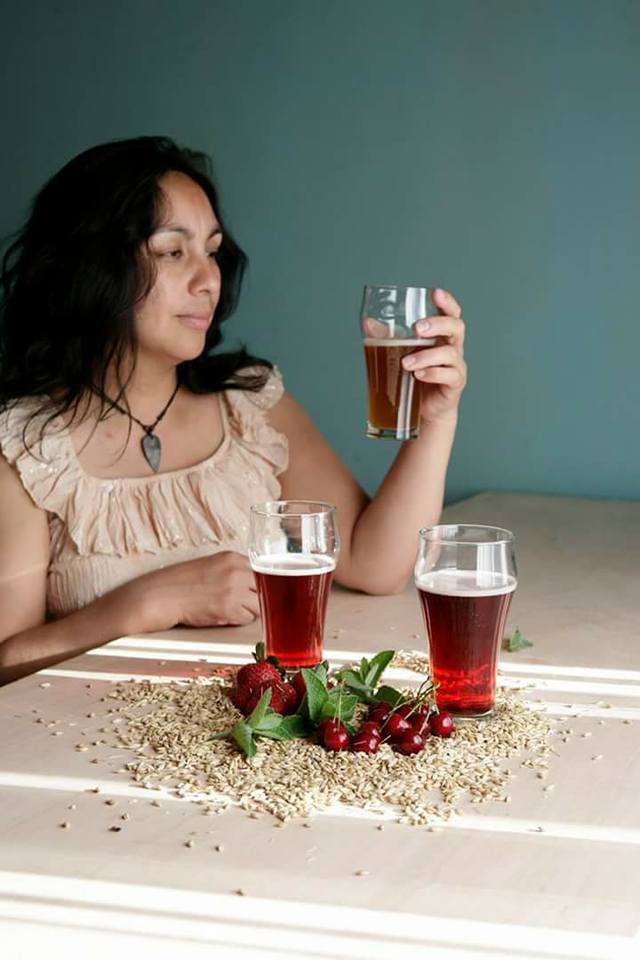
She talks about attending brewery classes and being the only woman there. Now,
“I offer classes on beer making where I share everything I know. I am not prideful like that. The only thing I keep to myself are my recipes. I want to encourage beer making here because, as I tell people, ‘if I make a good beer, you make good beer, and he makes good beer, our region will become known for its breweries.”
Watching her with her daughter and grandson it seems Angelica continues to embrace and enjoy her journey. Now, rather than as a challenge, “my family see me as a resource.”
My life has taught me that happiness is just an attitude.”
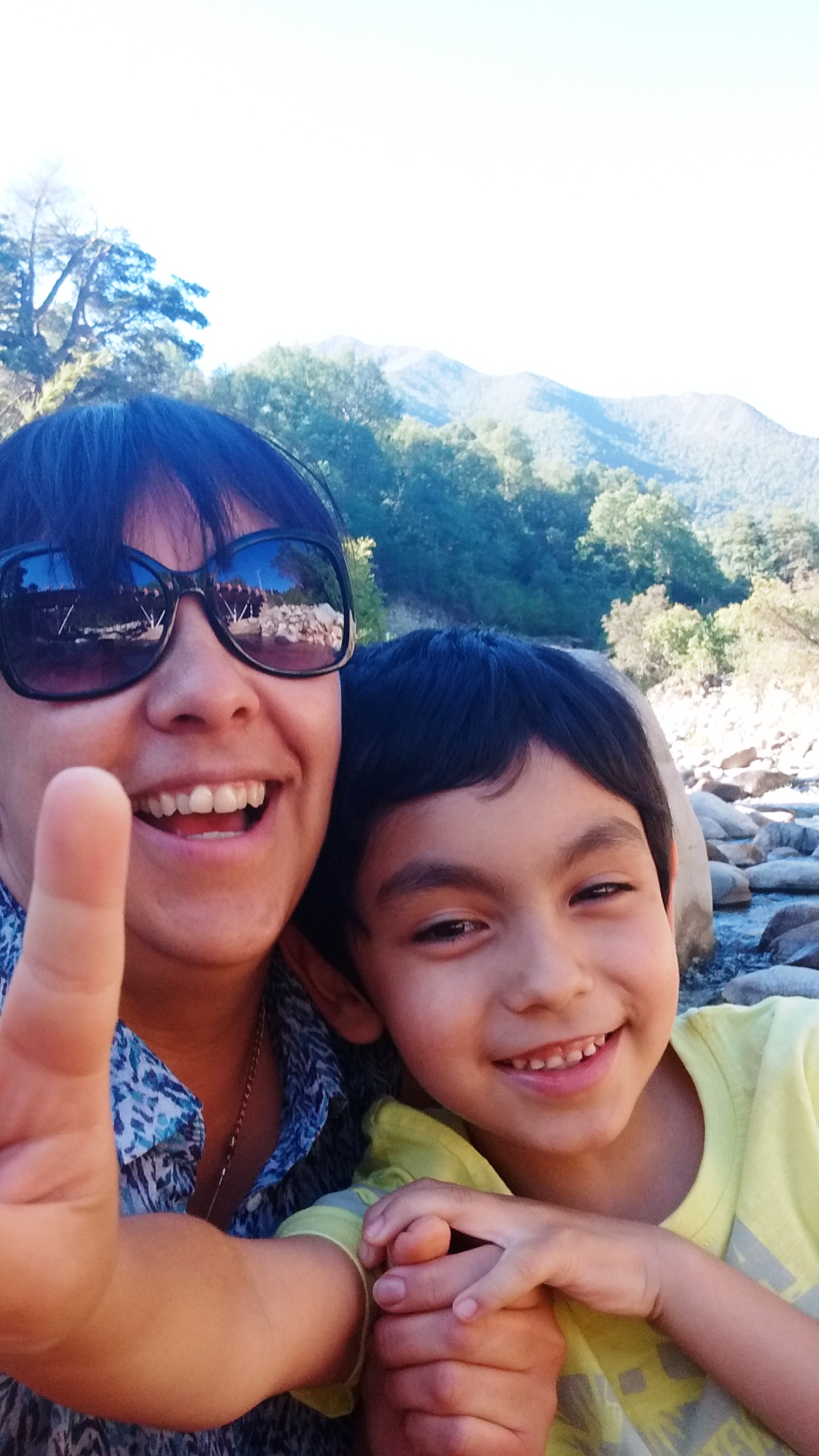
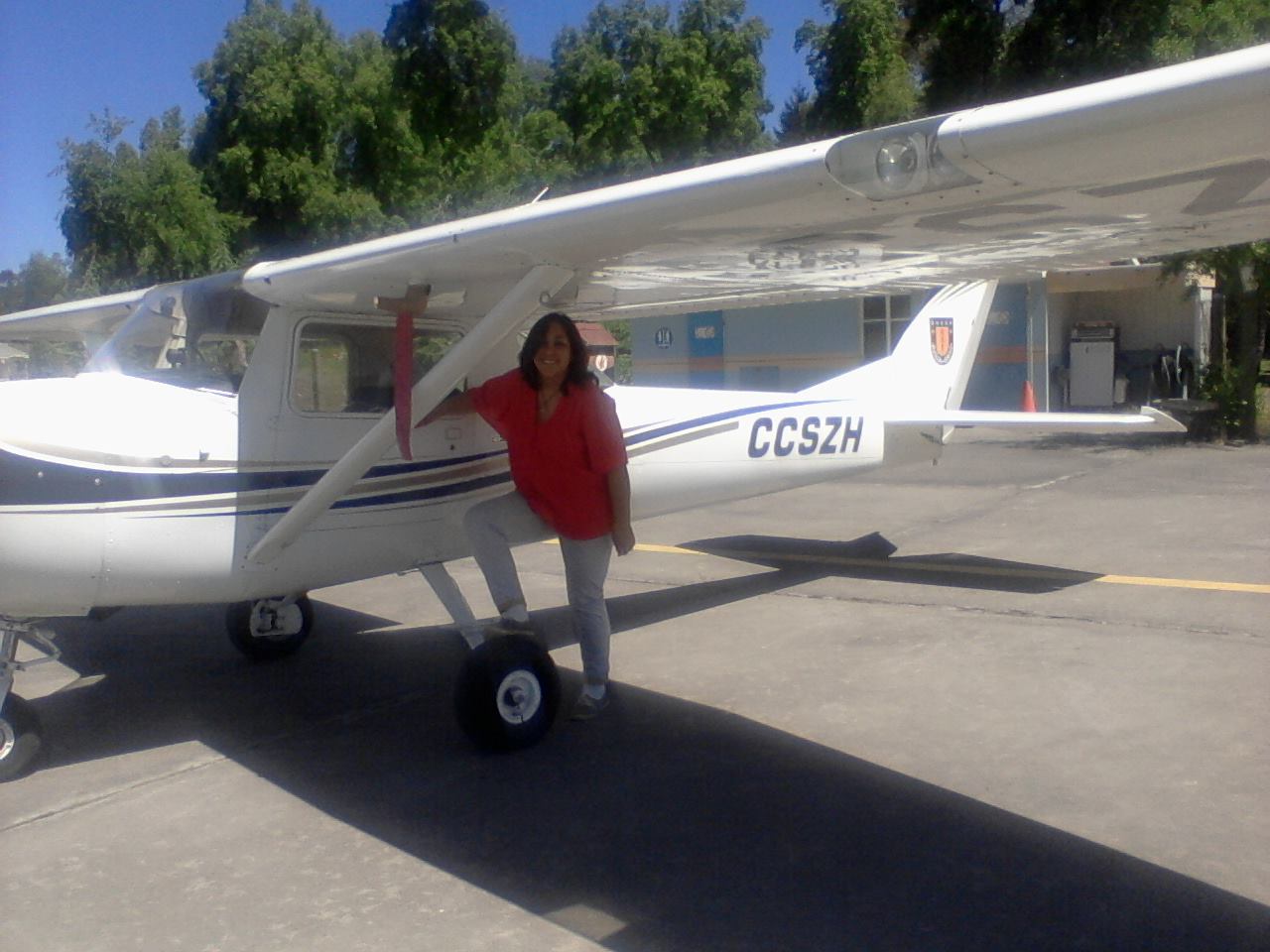
Su Historia: Ella es irrompible
Escrito por Fidgit
Traducción por Henry Tovar
La serie ‘Su Historia: Ella Puede’ perfila a las mujeres que persiguen sus pasiones. Cada uno ha aumentado con valentía, un mensaje y una voluntad de compartir su propia odisea.

Angélica es una tenaz de 46 años que ama su independencia, sus hijos, viajes, y AC / DC y Metallica. Según lo explica, de acuerdo con la comprensión tradicional chilena, hay tres etapas de la vida. “La primera etapa es la niñez, la segunda es cuando ella levanta a su familia, la tercera es una vez que sus hijos son crecidos.”
Ninguna de estas fases ha sido fácil para ella, pero encuentra razones para celebrar todos los aspectos. Mientras conversamos durante el desayuno en el albergue que ella administra, El Molino, en San Fabián, Chile, ella explica la fuerza del carácter y el código personal que se ha forjado a través de estas etapas. Mirando por la ventana, palmeando su taza de té con el rostro de un lobo, dice, “debajo de todo, doy gracias a Dios”.
Fase 1- Infancia
Ella era una de 4 niños y la única hija. Su padre era un granjero de arroz que esperaba que uno de sus hijos se hiciera cargo, “pero yo era el único que estaba interesado en la agricultura, aunque nunca me lo ofreció”.

Con el tiempo empezó a trabajar con él, y se golpeaban las cabezas a menudo “, porque cuando me enseñaba cómo se hacía algo sugiere maneras de mejorarlo, y él decía:” ¿quién eres tú, que nunca has hecho esto? ¿Cómo hacerlo mejor? Me atreví a enfrentar a mi padre incluso desde que era una niña. [“La mujer que se enfrenta al papa desde niña.]
Ella siempre ha sido de un carácter fuerte y persistente. Cuando se encontró con algo que no sabía cómo resolver, “llamó a Pedro, Juan y Diego”, uno de los muchos coloquialismos chilenos que ataron nuestras conversaciones. Su equivalente a decir, “cada Tom, Dick y Harry”. Nos reímos de ellos y comparamos los refranes cuando volvemos a llenar nuestro té.
“Yo estaba en conflicto mi familia mucho como una niña porque siempre me preguntaba todo, siempre quise saber por qué y cómo hacer las cosas mejor.Al final rompí el paradigma en mi familia que una mujer está destinado a quedarse en casa . ”

Fase 2- Maternidad
Durante la segunda fase, su vida se convirtió en sus hijos. “Me casé joven y era muy carismático, a la gente le gustaba porque quería cuidar a todos, excepto a su familia”. Se divorció hace 10 años. Ella lo pago todo. Tambien accesso apoyo psicológico de SERNAM, la rama nacional de servicios para mujeres chilenas. “Mi ex-marido era bipolar y viví mucha violencia física y psicológica, no tomé nada en el divorcio, llené mi casa con mi propio trabajo, yo crié a mis dos hijos”.
“La elasticidad es la habilidad de perdonar a alguien y elevarse por encima, o bien podría vivir toda mi vida lamentando lo que era o yo podría decir:” Lo siento por él “. Eso me dio mucho más, así es como se puede curar, hay que vivir el escenario hasta que digas: “ya es suficiente, me levanto”.
[Y me dio mucho más eso. Uno se puede curar. Hay que vivir la etapa hasta que uno dice ya, me levanto]

“He trabajado en muchas cosas, aunque hubo momentos en que no tuvimos suficiente ni siquiera por pan.” Su rostro se desplaza mientras trabaja a través de la memoria y extrae la fuerza de ella. Ella continúa diciendo: “Creo que esto resultó bueno, porque enseñó a mis hijos el valor de las cosas y no para comprar cosas innecesarias, también pueden reírse de las cosas más sencillas”. [Porque les enseno valorar todo. Pero no gastan en las cosas no necesarias. Mis hijos se pueden reir de las cosas más simples]
Su trabajo a tiempo completo estaba trabajando con frutas congeladas para la exportación y ella siempre trabajó en exceso. Ella complementa ese ingreso trabajando los fines de semana, “vendiendo cosas en los autobuses y puerta a puerta.” Entiendo un poco cómo vives de tus mochilas porque cuando reconocí a la ama de casa habitual, especialmente en el campo, tiene una necesidad Por muchas cosas pequeñas, por ejemplo prendedores de ropa, llenaría una mochila con ellos y viajaría a los pequeños pueblos y iría de puerta en puerta, así era como me permitía vivir y ayudar a mis dos hijos a ir a la universidad “.
A pesar de las largas horas y el trabajo, siempre hacía tiempo para sus hijos. “Siempre les daba por lo menos media hora de mi día, aunque a veces volvía a casa de una jornada laboral de 14 horas agotada, pero ellos venían a mi cama conmigo para que pudiéramos estar juntos”. Menos.] Ahora mi hija dice, “Dios me dio un 4×4, todo terreno, mamá.”

Fase 3 – Independencia
“Estoy en una nueva fase en mi vida, he terminado de criar a mis hijos y ahora estoy más libre”. Ella se quita el pelo de la cara y empieza a rayar. “Siempre que he ahorrado suficiente dinero, voy a viajar, me encanta el buceo y he ido a bucear, cosas que las mujeres no hacen aquí”. Viajar te abre la mente, para darse cuenta de que hay muchas oportunidades. “[Yo me abro a conocer mas cosas. Abre la perspesctiva]

Ella habla de la libertad, pero su espíritu emprendedor y trabajador impregna. Ella recuerda con alegría sus viajes en México, citando que fue donde aprendió la pequeña ética empresarial que “lo que es bueno para ti es bueno para mí”.
Con orgullo bien merecido declara: “Soy la primera cervecería legal en la Provincia de San Carlos Ñuble, desde 2009.” Como no había cervecerías cuando fui a solicitar el permiso, tuve que hacer toda la investigación para el gobierno local mí mismo. Fue mucho trabajo y me costó mucho, pero me valió la pena poder vender mi cerveza legalmente “.

Ella habla de asistir a clases de cervecería y ser la única mujer allí. Ahora,
“Ofrezco clases sobre la elaboración de la cerveza donde comparto todo lo que sé, no soy orgulloso así, lo único que guardo para mí son mis recetas, quiero alentar la elaboración de la cerveza porque, como digo a la gente, si hago Una buena cerveza, una buena cerveza, y hace una buena cerveza, nuestra región será conocida por sus cervecerías “.
Mirándola con su hija y nieto parece que Angelica continúa abrazando y disfrutando su viaje. Ahora, más que como un desafío, “mi familia me ve como un recurso”. Me veen como un apollo.
Mi vida me ha enseñado que la felicidad es sólo una actitud.


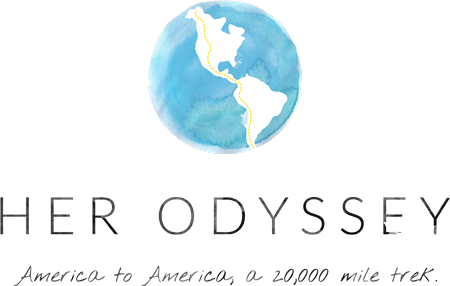



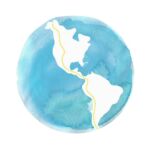

Comments (2)
Thanks for this inspiring story of courage and creativity. This lady is an inspiration.
Happiness is just an attitude. I love that and these heart felt stories. Thanks so much!